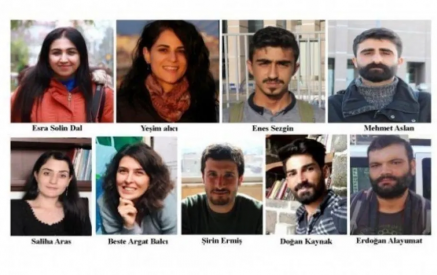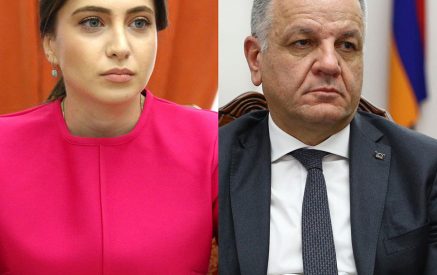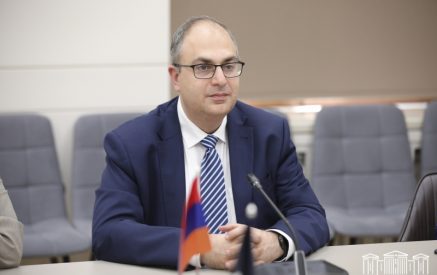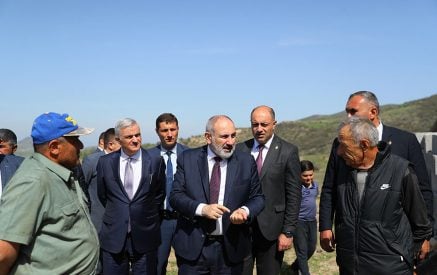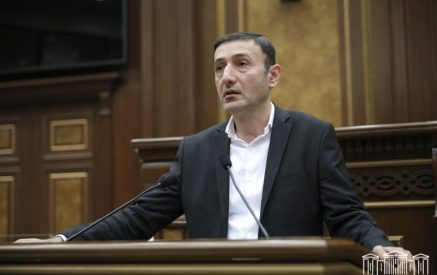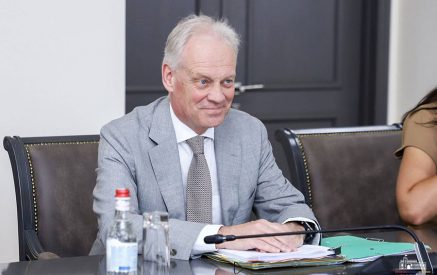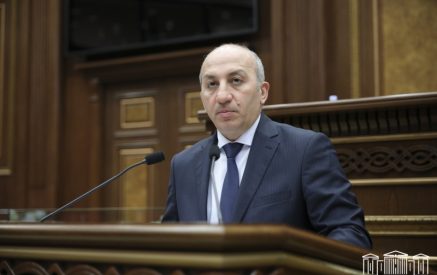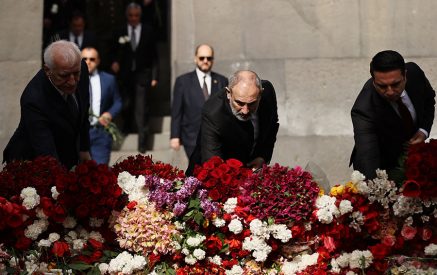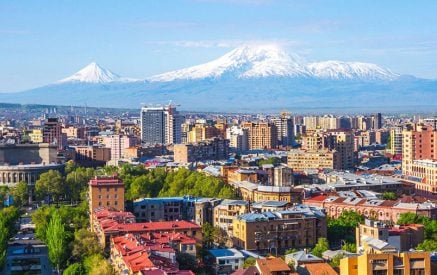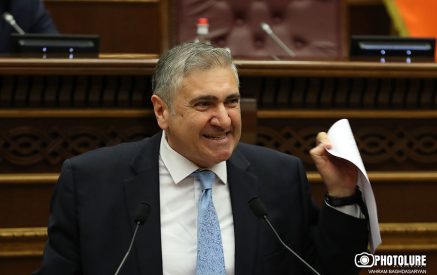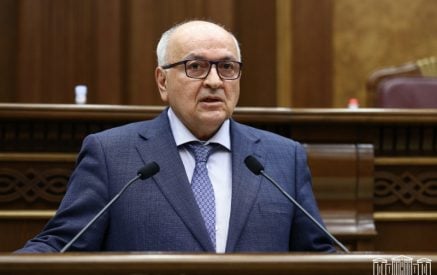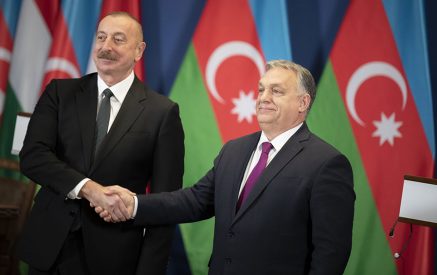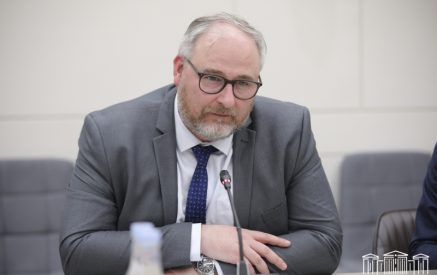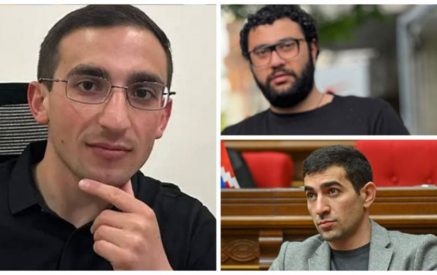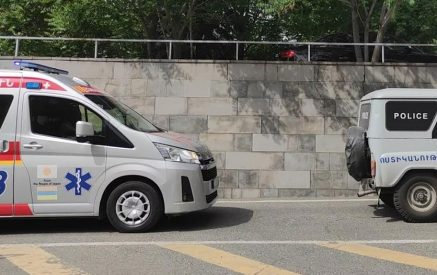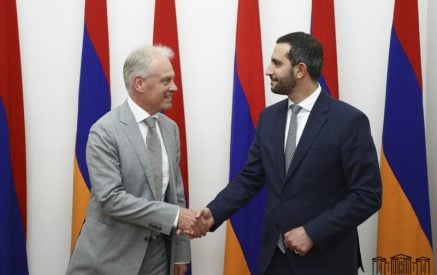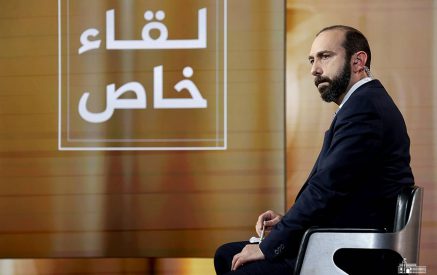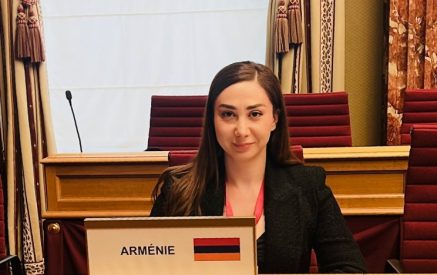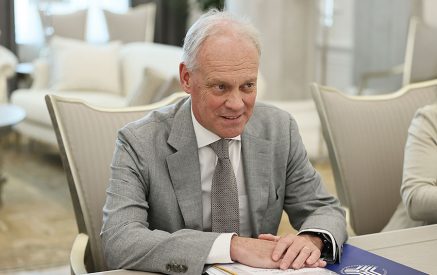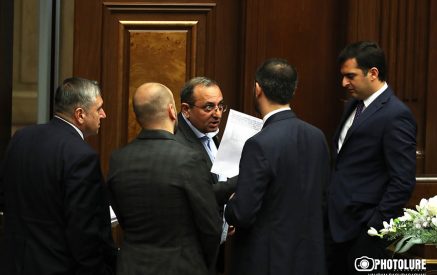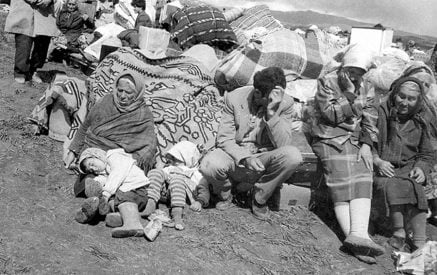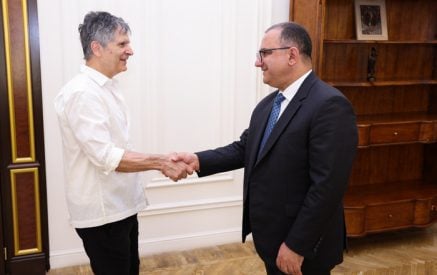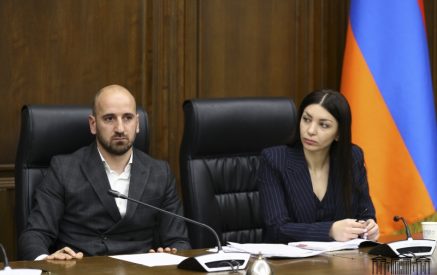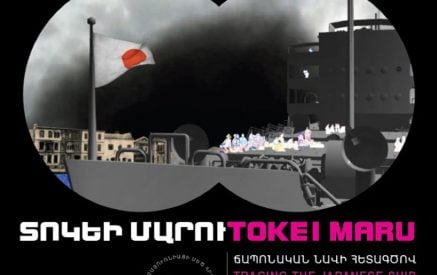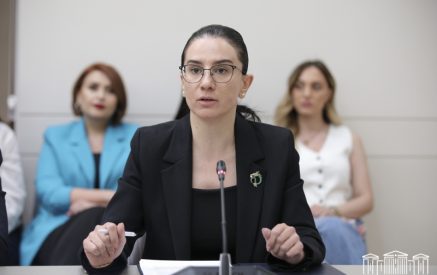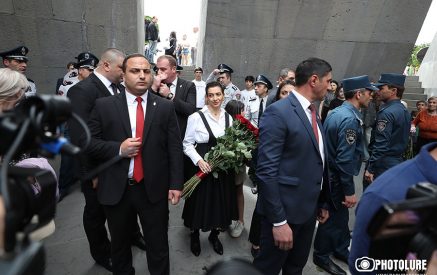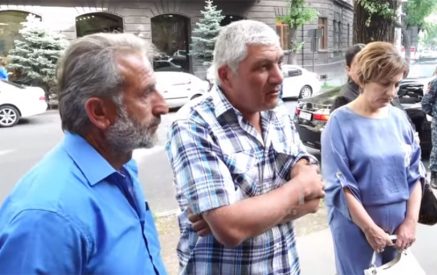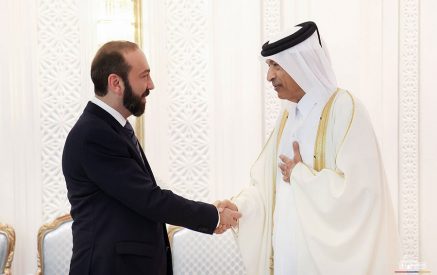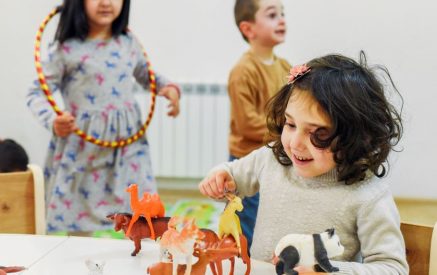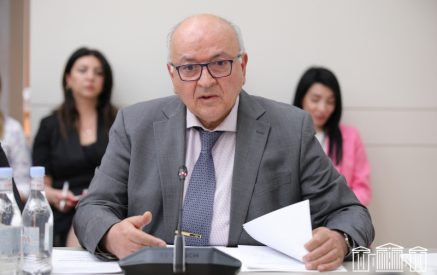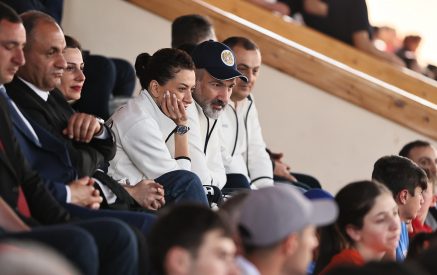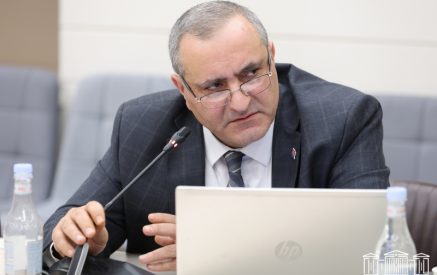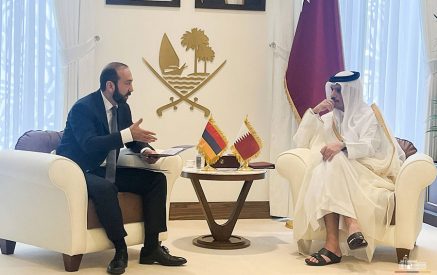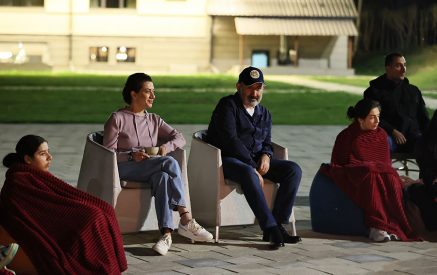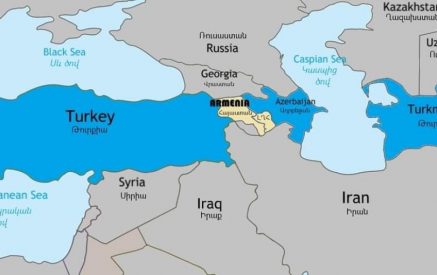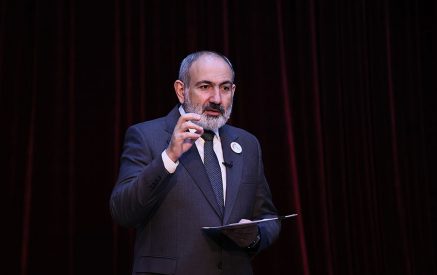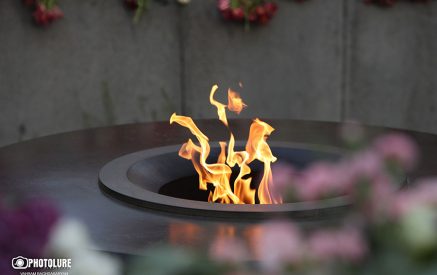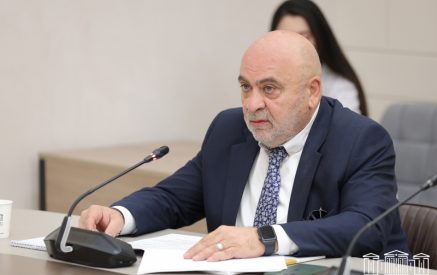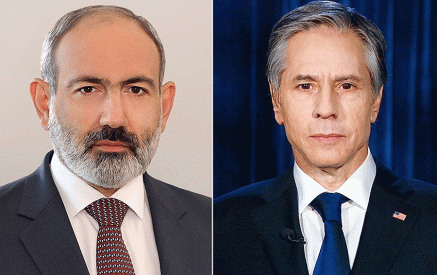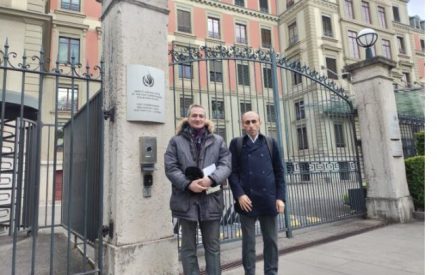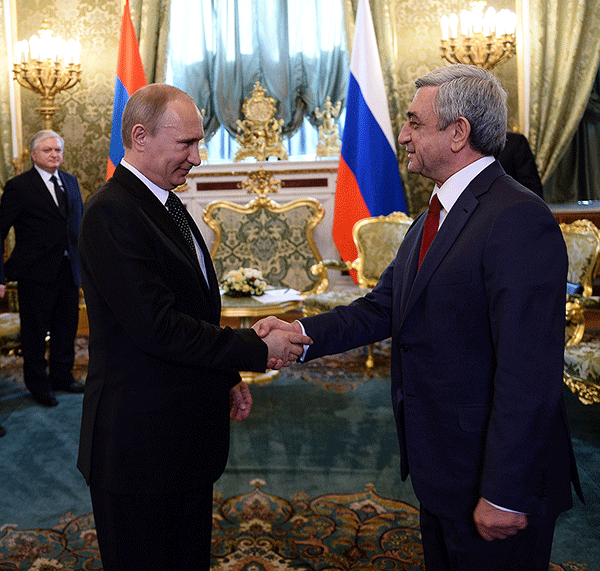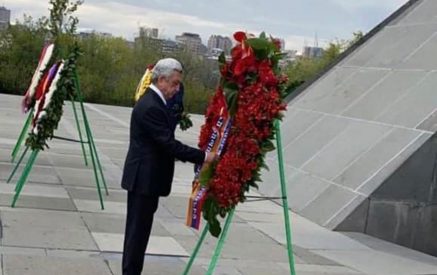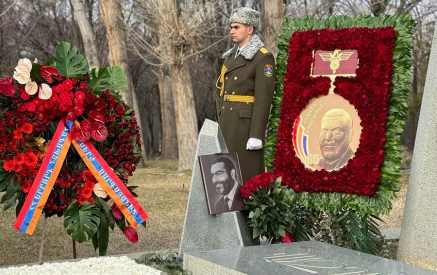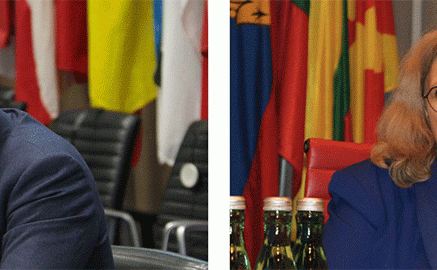According to Marta Ayvazian, Russia as an OSCE MG co-chair country bear responsible not to prevent the negotiation process, Armenia was to raise this issue long ago at the international instances.
– Last week, Serzh Sargsyan paid a working visit to the Russian Federation. According to official information, on the view of the statements by the Presidents of Armenia and Russia, what was your impression? Are the recent Armenia-Russia strategic relations, generally, taking a proper level?
– Basically, Armenia-Russia relations, particularly in recent years, do not comply with the definition of a strategic partnership. The actual and desired partner for Russia, currently, is Azerbaijan in the South Caucasus, while Armenia primarily serves Russia’s political-economic interests in our region to the detriment of the interests of its own statehood and the people. Hence, talking about any level of strategic relationship in the current situation, I believe, is pointless. As for the circulated official information regarding regular meetings or the statements made by the president of Russia and S. Sargsyan, in particular, about deepening the mutually beneficial cooperation, then, in my opinion, they are procedural events of declarative nature and do not reflect as the true snapshot of our relations so as the content of the agreements reached during these meetings.
Caption: Former Head of the RA Foreign Ministry’s NATO Department, also the expert of Bureau of Democracy, Security, and Development, Marta Ayvazyan
Read also
– The next interpretation voiced from Russia was about the protest actions against the electricity price hike in Yerevan, and again they see the “ears” of the West in the organization of the protest. Chairman of Russia’s Investigative Committee, Alexander Bastrykin, believes that the situation created recently was somehow reminiscent of the Ukrainian Maidan in 2014. Bastrykin expressed skepticism, especially about why the US Embassy had demanded the RA sovereign authorities to thoroughly investigate what happened, noting, “This crisis in Armenia did not turn into an armed conflict because the Armenian leadership, which had learned lessons from the bitter experience of the Nagorno-Karabakh conflict, drew the right conclusions, and did not allow the masses imbued with nationalistic, radical-religious or other extremist ideology rise in the country.” In your opinion, has Armenia provided grounds for the expression of this kind of uncertainty by Russia, or thereby, simple and blackmail political tools are used?
– Let’s start with the fact that I consider voicing such estimates about our internal events by any representative of other state’s investigative authority and labeling of the developments totally unacceptable. Putting the events of absolutely different nature and fundamentally incomparable phenomena, historic developments and political processes going on in Armenia, as well as in other states being under Russia’s impact on the same plane by various Russian official, making them identical and giving interpretations and assessments to these developments by such formulations, unmask Russia’s political agenda and are aimed, first and foremost, at the formation of a public opinion serving some political objectives and having almost nothing to do with reality in the Russian society. Thereby, both their possible moves regardless of their legality and the activities of the authorities of given country are substantiated and justified.
In this regard, it is noteworthy that Bastrykin who naturally expresses the approach of the Russian authorities compares the protests against the electricity price hike to Ukrainian Maidan and, in this context, he mentions the Nagorno-Karabakh conflict by presenting it simply as a conflict incited by “the masses imbued with nationalist, fundamentalist-religious or other extremist ideology”. In doing so, he presents all these events and political developments not only in a distorted manner but also justifies all the actions of the government aimed at putting down any public outcry. And yes, these formulations contain certain political blackmail, which, in my opinion, is aimed not so much against the RA authorities, who in any case do not enjoy the trust with the Russian authorities, but also with our society mainly.
– Two years have elapsed since the President of Armenia announced the decision of Armenia’s accession to the EaEU. What has been changed in our lives in terms of both security and economic aspects?
– There is no positive change and is not expected, the negative consequences are long ago already visible. In particular, in terms of economic aspect, the commodity turnover between the EaEU Member States has been reduced, the export of goods to Russia, as well as the import of goods from the countries outside of this organization, are complicated and expensive, the international investments have become less. This applies not only to Armenia. Belarus and particular Kazakhstan regularly express their strong discontent with EaEU procedures. Kazakh producers even intimidate to commence relevant legal proceedings against Russia.
As for the security, then, it was a speculation at the outset, hence, our membership to the EaEU could not have a direct impact on our military security. However, Russia’s desire to also see Azerbaijan in the EaEU membership is a real threat for Armenia’s and Nagorno-Karabakh’s security, as it can lead to some concessions imposed on us by Russia in the talks on Nagorno-Karabakh normalization process.
– Enough time, the situation is tense on the Armenian-Azerbaijani border. To what extent is Russia’s stance adequate in the view of shelling the border villages of CSTO-member Armenia? Recently, Russia’s State Duma “United Russia” faction MP, also a Member of the Committee on Security and Combating Corruption of the State Duma, Boris Reznik, was asked whether a sale of a new batch of weapons to Azerbaijan is expected, he answered, “So even if Russia sells a new batch of weapons to Azerbaijan, this doesn’t mean at all that Russia will stop fulfilling its commitments. We keep the situation under control, including every bullet, other parts … of the sold weapons. Wouldn’t it be better if Azerbaijan purchased weapons from us so that we could know what we have sold and how much and thus keep the situation under control rather than buying from a third country and we do not know?” This opinion is often voiced, but as a country dealing with the settlement of Nagorno-Karabakh conflict, does Russia, in your opinion, support to the establishment of peace or an outbreak of war?
– As for the sale of weapons to Azerbaijan, first of all, in the event of unsettled conflict, selling weapons to the conflicting parties is contrary to a number of international norms, it creates tension and impedes the process of peaceful normalization of the conflict, as well as promotes the establishment of peace and an arms race threatening the ceasefire. This is advantageous to Russia as a supplier of weapons to Azerbaijan as well as to Armenia. Not to forget about the UN Security Council adopted resolutions on Nagorno-Karabakh conflict, which call on the states to refrain from such actions that may cause additional tension between the parties. Selling weapons to Azerbaijan by Russia, in particular, is unacceptable, given the fact that Russia is one of the Minsk Group co-chairing states and carries a dual responsibility not to create obstacles to the negotiation process, and Armenia should long ago have raised this issue with the international instances.
Shelling Armenia’s territory and Russia’s stance, be it in the framework of CSTO or bipartite relations, proves once again that Russia is not a reliable partner and, in any sense, cannot act as a part of our security system.
As to the allegation of Russia’s knowing how much and what type of weapon is sold to Azerbaijan, thus keeping the situation under control, is just strange and leaves an impression that the shelling is also taking place under Russia’s control. Generally, manipulation of the conflicts, inciting tension by all means and preservation of instability, support to corrupted and thereby manageable authorities, are the sole levers or methods available to Russia that are constantly used by RF authorities, particularly to maintain their impact in the former USSR countries and reach their goals . If you have noticed, in our border areas, as well as in Nagorno-Karabakh borders, the growth of tensions is often followed by the meetings of Sargsyan with the RF president or other level Armenian-Russian negotiations, the results of which, as a rule, are in favor of Russia’s interests. And in this sense, one can definitely say that the establishment of peace and stability in the South Caucasus is contrary to Russia’s interests and objectives.
– Ambassador of Iran to Armenia, Mohammad Raiesi, referring to the opportunities of Iran-Armenia relations, noted that he considers the Iranian gas transit to Europe possible. How feasible do you consider the project of Iranian gas transit to Europe thru Armenia?
– Under the current geopolitical situation, I do not exclude that this project will be implemented. Iran and the European countries are interested in its implementation. At the same time, Russia, which fully controls the RA authorities and has the monopoly in Armenia on gas import, transportation and maintenance, cannot speak out against the gas transit project to Europe thru Armenia, trying to use this project for its own purposes as possible. In any case, under some internal political changes, the implementation of this project, in a long-term perspective, will be in favor of the interests of Armenia.
Emma GABRIELYAN, “Aravot” daily

